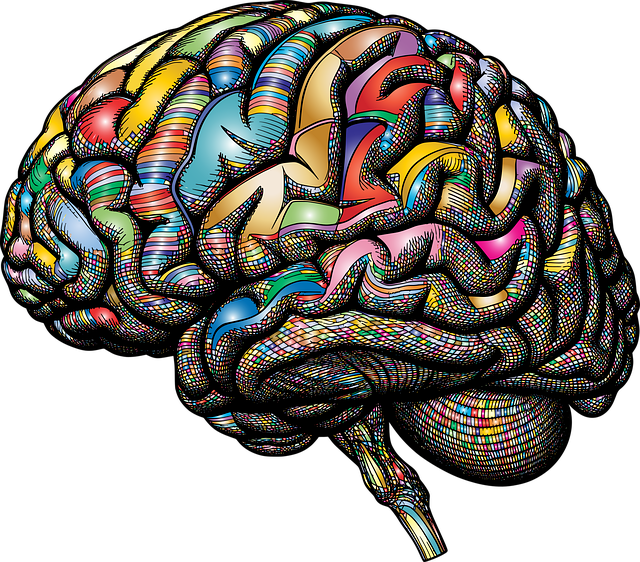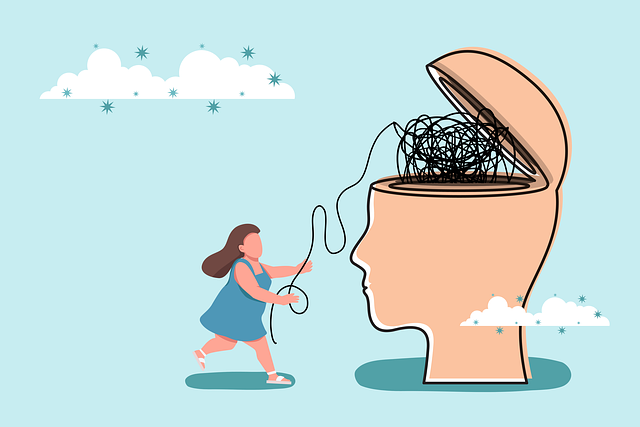Denver Adjustment Disorder (DAD) significantly impacts mental health, but effective therapy using cognitive-behavioral techniques (CBT), dialectical behavior therapy (DBT), and mindfulness practices can manage symptoms. Cultural sensitivity in healthcare is crucial as it influences stress responses and treatment outcomes. Combining these evidence-based strategies with positive mindset cultivation helps individuals develop healthier coping mechanisms, enhance resilience, and achieve improved emotional well-being through DAD therapy. Lifestyle adjustments, including regular exercise, adequate sleep, and self-care, are also vital for long-term emotional stability.
Mood regulation is a vital skill for navigating life’s challenges. This comprehensive guide explores various strategies, focusing on helping individuals manage and maintain emotional balance. We delve into the intricacies of Denver Adjustment Disorder, offering insights into its understanding and treatment through cognitive behavioral techniques, mindfulness practices, and lifestyle adjustments. Discover how these approaches can empower you to achieve long-term mood stability and enhance your overall well-being.
- Understanding Mood Regulation: Unraveling Denver Adjustment Disorder
- Cognitive Behavioral Techniques for Emotive Balance
- Mindfulness and Meditation Practices to Calm the Mind
- Lifestyle Adjustments for Long-Term Mood Stability
Understanding Mood Regulation: Unraveling Denver Adjustment Disorder

Understanding Mood Regulation: Unraveling Denver Adjustment Disorder
Mood regulation strategies are essential for maintaining emotional well-being and mental resilience. Among various challenges, individuals coping with Denver Adjustment Disorder (DAD) often require tailored approaches to navigate their unique experiences. DAD, characterized by difficulty adjusting to significant life changes or stresses, can significantly impact one’s mental health and overall quality of life. Therapy plays a pivotal role in managing DAD, employing evidence-based techniques such as cognitive-behavioral therapy (CBT) and dialectical behavior therapy (DBT) to help individuals process emotions effectively and develop healthier coping mechanisms.
Cultural sensitivity in mental healthcare practice is crucial when addressing DAD, recognizing that cultural beliefs and experiences can significantly shape an individual’s response to stress and adjustment disorders. Incorporating emotional well-being promotion techniques that resonate with diverse backgrounds ensures inclusive and effective treatment. By combining these approaches with the mind over matter principles—encouraging individuals to cultivate a positive mindset and reframe their perceptions—therapists can empower clients to take control of their mood regulation, fostering greater resilience and improved overall well-being.
Cognitive Behavioral Techniques for Emotive Balance

Cognitive Behavioral Techniques (CBT) offer a powerful set of tools for achieving emotive balance and managing mood disorders, such as Denver Adjustment Disorder. This evidence-based approach focuses on identifying and challenging negative thought patterns that contribute to emotional distress. By modifying these cognitive distortions, individuals can gain new perspectives and develop healthier coping mechanisms.
One effective CBT strategy involves self-awareness exercises, encouraging individuals to observe their thoughts and emotions without judgment. Through this process, they learn to recognize triggers and develop a greater sense of control. Additionally, community outreach programs that incorporate CBT techniques can foster support networks, enhancing the overall well-being of those dealing with mood regulation challenges, including anxiety relief.
Mindfulness and Meditation Practices to Calm the Mind

In today’s fast-paced world, where stress and anxiety are prevalent, mindfulness and meditation practices have emerged as powerful tools for calm and emotional regulation. These ancient techniques, now backed by scientific research, offer a simple yet profound method to manage Denver Adjustment Disorder symptoms. By focusing on the present moment, individuals can learn to observe their thoughts and emotions without judgment, fostering a deeper sense of self-awareness.
Meditation encourages relaxation and a clear mind, which is essential for those seeking to develop a robust self-care routine for better mental health. Regular practice has been shown to reduce stress levels and enhance overall emotional resilience. Incorporating mindfulness into daily life can be as simple as dedicating 10 minutes for meditation or engaging in mindful breathing exercises. These practices allow individuals to navigate the challenges of life with a calmer and more balanced mindset, ultimately contributing to improved emotional regulation.
Lifestyle Adjustments for Long-Term Mood Stability

Maintaining a stable mood over the long term is key to overall well-being, and lifestyle adjustments play a significant role in this process. Through Denver Adjustment Disorder Therapy, individuals can learn effective coping mechanisms that extend beyond traditional talk therapy. This includes adopting healthy habits like regular exercise, which boosts mood through the release of endorphins and reduces stress. Adequate sleep is also crucial; establishing a consistent sleep schedule helps regulate hormones related to mood and emotion regulation.
Additionally, managing one’s environment is essential. This involves setting boundaries, especially for mental health professionals who may be at risk of burnout. Implementing structured routines, engaging in relaxing hobbies, and practicing mindfulness or meditation can enhance resilience and confidence. Effective time management and prioritizing self-care activities are integral parts of a comprehensive strategy for mood regulation, ensuring individuals feel empowered to navigate life’s challenges with greater ease.
In exploring effective mood regulation strategies, this article has delved into various techniques from cognitive behavioral therapy to mindfulness practices and lifestyle adjustments. For those dealing with conditions like Denver Adjustment Disorder, these tools offer promising paths to emotional balance and long-term stability. Integrating these strategies into daily life can foster resilience, enhance well-being, and empower individuals to navigate mood fluctuations with greater ease. Remember that seeking professional help, such as Denver Adjustment Disorder therapy, is a crucial step towards mastering these techniques and achieving lasting mental health improvements.












